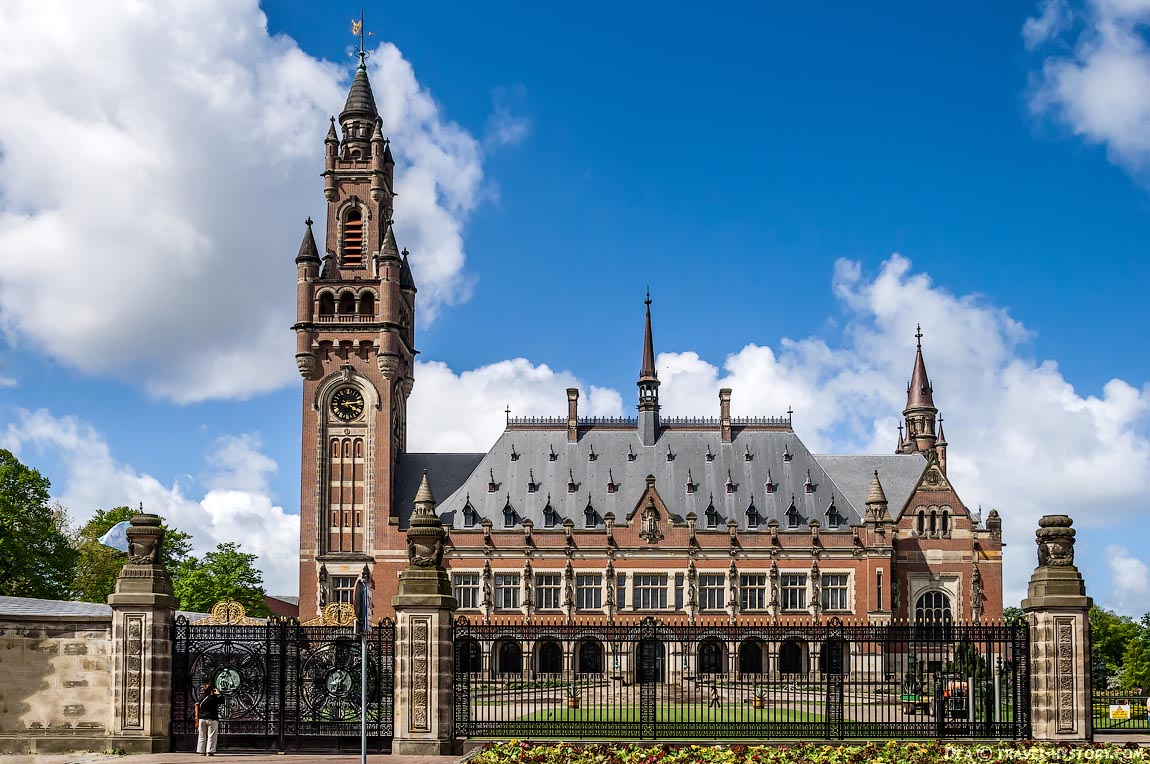

On February 24, 2022, russia attacked Ukraine. To stop the war, the Ukrainian authorities use various mechanisms, in particular, international law. On February 26, Ukraine filed a lawsuit with the International Court of Justice (ICJ) in The Hague against russia under the Convention on the Prevention and Punishment of the Crime of Genocide and a request for an order of temporary measures against the russian federation.
In the lawsuit, Ukraine claims that russia frankly and unscrupulously interprets the Genocide Convention, falsely accuses Ukraine of genocide, and uses this pretext for a military invasion. Thus, Ukraine asks the International Court of Justice to establish:
- that no crime of “genocide” was committed by Ukraine in the territories of Donetsk and Luhansk oblasts, contrary to russia’s statements;
- that russia has no right to take any action against Ukraine to prevent or punish the fictitious “genocide”;
- that russia’s recognition of the independence of the so-called “DPR” and “LPR” on February 22, 2022, was made on the basis of fictional genocide and therefore, the provisions of the Genocide Convention do not apply in this case.
- that the “special military operation” launched on February 24, 2022, is based on a false claim of genocide and, accordingly, the Genocide Convention cannot be applied here either.
Ukraine also demands that russia be obliged to:
- provide guarantees of non-repetition of illegal actions in and against Ukraine;
- pay reparations for the damage committed.
On March 7, 2022, the UN International Court of Justice in The Hague began hearing the case. On 16 March, the Court must rule on Ukraine’s request for temporary measures. In particular, Ukraine requests the IC of the UN to establish the following temporary measures:
- To order russia to immediately stop hostilities on the territory of Ukraine. Similar decisions on such temporary measures have been rendered by the UN International Court of Justice before, even against a permanent member state of the UN Security Council — the US — in Nicaragua v. the US case.
- russia must immediately undertake that any armed formations, persons, and organizations managed or supported by the russian federation not provoke the deployment of hostilities. A similar decision on such temporary measures was recently taken by the IC of the UN in the case of the Gambia v. Myanmar.
- Ukraine asks to order russia not to take actions that may complicate or expand the dispute. And also, to provide guarantees that no actions on the part of russia will aggravate the dispute and will not complicate the potential resolution of this dispute.
- Ukraine demands that russia provide reports to the IC of the UN on the steps it has taken to implement the temporary measures in the week following the decision of the UN IC. Ukraine also demands that russia continue to report regularly in accordance with the Court’s decision.
In order for the UN International Court of Justice to impose these temporary measures, Ukraine must prove that the Court prima facie has jurisdiction over the lawsuit and the plausibility of the rights whose protection and restoration the claimant state requests.
What’s next?
In parallel with the decision on temporary measures, the IC of the UN is considering the merits of the case. This process can take years (3-5 years according to the jurisprudence of the IC of the UN), so the implementation of the decision on temporary measures at this stage is crucial. The decision of the IC of the UN in favor of Ukraine will mean that the international community has legally recorded and recognized the fact of russian aggression and war.
The decision of the IC of the UN is final, binding, and not subject to appeal. russia is a member of the UN, so it actually must respond to the Court’s decision. However, there are no clear instruments for the implementation of the UN IC decision, apart from what is described in Article 94 of the UN Charter.
It determines that in case of non-compliance with the decision of UN IC, further appeals to the UN Security Council for consultations are possible. The Security Council can sever economic and diplomatic relations with the rf, as well as communication formats such as mail or radio. If Russia refuses to implement the UN IC decision on temporary measures, it could lead to even greater isolation in the world.
If Russia refuses to implement the UNIC decision on temporary measures, it could lead to even greater isolation in the world.






